England are the favourites, but India's tried-and-tested squad are in the hunt in the Champions Trophy, feels Chetan Narula.
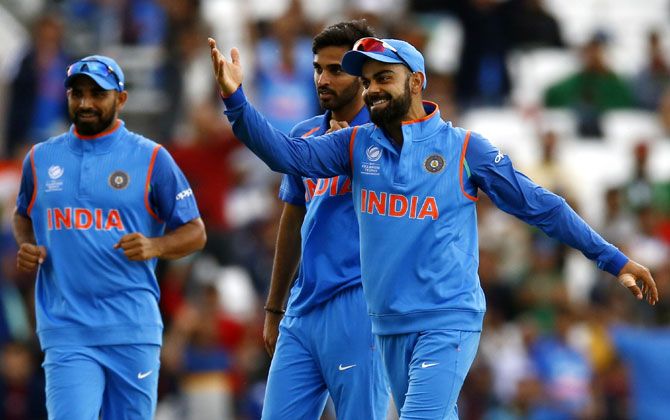
The Indian Premier League season is done and dusted. The clutter of never-ending, almost repetitive T20 matches is off the television sets.
Cricket, though, like the cycle of this universe, never stops.
June 1 began the Champions Trophy and India will defend its 2013 crown in England. Well, at least, it will serious business.
The Champions Trophy is an inexplicable case, really. Nobody else wants it, which explains why England gets to play host again this time.
Yet, no one also knows what really to do with it. There are bigger and better alternatives. The ODI World Cup draws more attention and money.
Then there is the World T20, a standout tournament for the shortest format.
Only Test cricket doesn't have a global tournament, but the format is fixated with bilateral series.
The Champions Trophy fills this gap, only because the ICC, its sponsors, broadcasters and everyone else with a say in affairs don't want a quadrennial Test championship put in place.
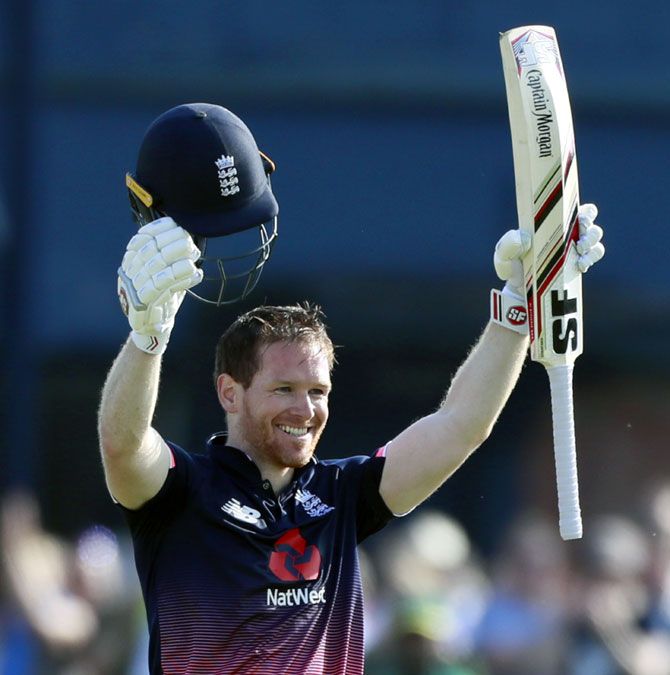
For the teams and players involved, this edition of the Champions Trophy is a pointed exercise on the road to the 2019 ODI World Cup, also to be hosted in England.
With only two years left, most teams have their plans in place or are building towards it. This chance of a dry run -- June 1 to 18 -- will determine how close the teams are in identifying a squad for 2019.
Let it be said here that defending champions India are not favourites this time around. That tag belongs solely to England, a team that has seen a meteoric rise in its limited overs' fortunes since the 2015 World Cup.
Under Eoin Morgan, English cricket has finally embraced the adventurism that belongs with the shorter format.
The biggest example of this was seen in how they belied expectations and finished runners-up in the 2016 World T20 in India.
Now, on their home soil, in favourable conditions, there aren't many who will bet against England lifting this trophy for the first time since its inception in 1998.
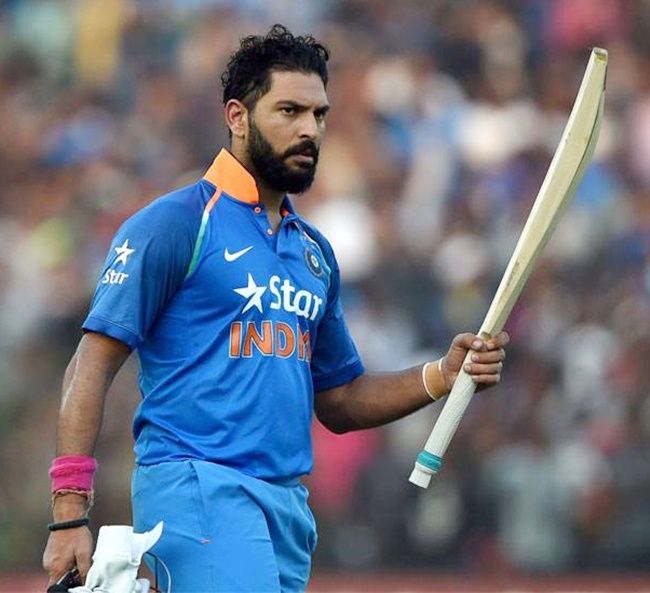
Even so, it doesn't mean that the men in blue aren't contenders.
The quality of this Indian side is such that they are always in with a shout in any limited overs competition.
And in this regard, it only helps that selectors have gone with a tried and tested formula when picking the Champions Trophy squad.
Whilst the IPL was on, there was a clamour for including adventurous youngsters who had impressed for their respective franchises.
The M S K Prasad-led committee, however, stuck to its guns and believed in the process that began in Australia last year.
It was when Yuvraj Singh, Ashish Nehra and Suresh Raina were included in the squad for three T20Is.
Yuvraj's inclusion was an important pointer to the present -- he went on to feature in the Asia Cup, the World T20, and after an impressive first class season, he was also picked for the three-match ODI series against England in January.
Yuvraj's inclusion was the selectors' solution to India's middle-order problem. They needed someone to anchor the innings along with M S Dhoni whilst Kedar Jadhav and Hardik Pandya were afforded a free hand as finishers.
They had earlier invested in Manish Pandey (picked in the original squad but he sustained an injury during the IPL, and was replaced by Dinesh Karthik) for this No 4 role.
But a poor outing against New Zealand (76 runs in 5 ODIs) in October 2016 meant that they had to look elsewhere, preferably towards an experienced hand.
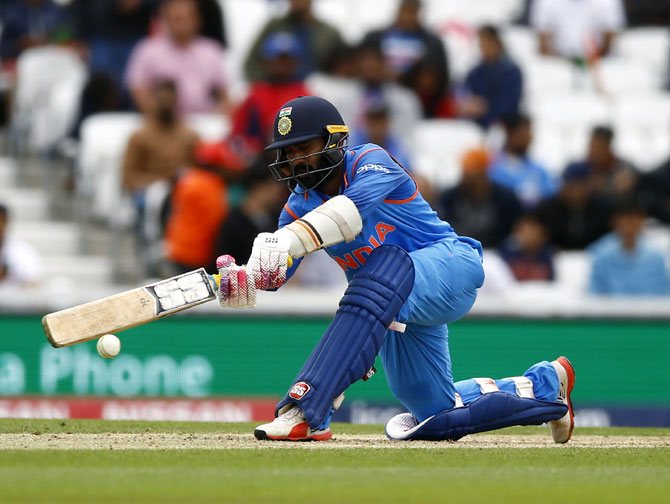
In a way, Karthik's selection underlines India's strength -- a stable selection reflecting the team's steadiness in both ODI and T20 cricket.
For a while now -- in fact dating back to the 2013 Champions Trophy -- the same core players have been representing India in the shorter format.
While it has led to a certain lack of adventurism in T20Is, in the 50-over game, this has led to consistency in performances.
So much so that Virat Kohli not leading India in too many ODIs (after Dhoni quit the captaincy last December) is not really seen as a weakness.
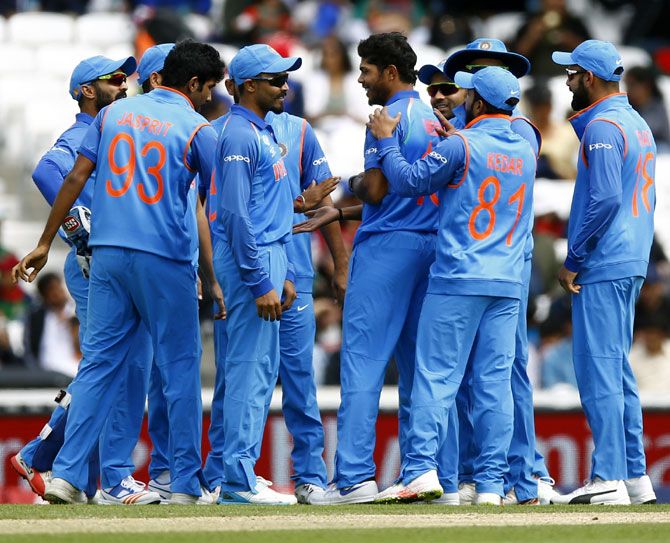
The only cause for concern, perhaps, is that in a long 2016-2017 season, India played 17 Tests and only eight ODIs with the last one finishing way back in January.
A school of thought suggests that playing the IPL for nearly two months will help the Indian cricketers; it can be argued that they didn't really play as one unit in that league.
Whether this aspect will affect the coherency of this experienced squad is anybody's guess.
'Yes, there isn't too much similarity in ODI and T20 cricket. But the IPL is helpful because it is a very competitive tournament. There is a mental state of match fitness, in scoring runs and in bowling rhythm. This competitiveness could help us in the Champions Trophy, which is a condensed tournament,' said skipper Kohli, in his pre-departure press conference last week.










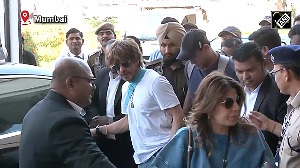


 © 2025
© 2025